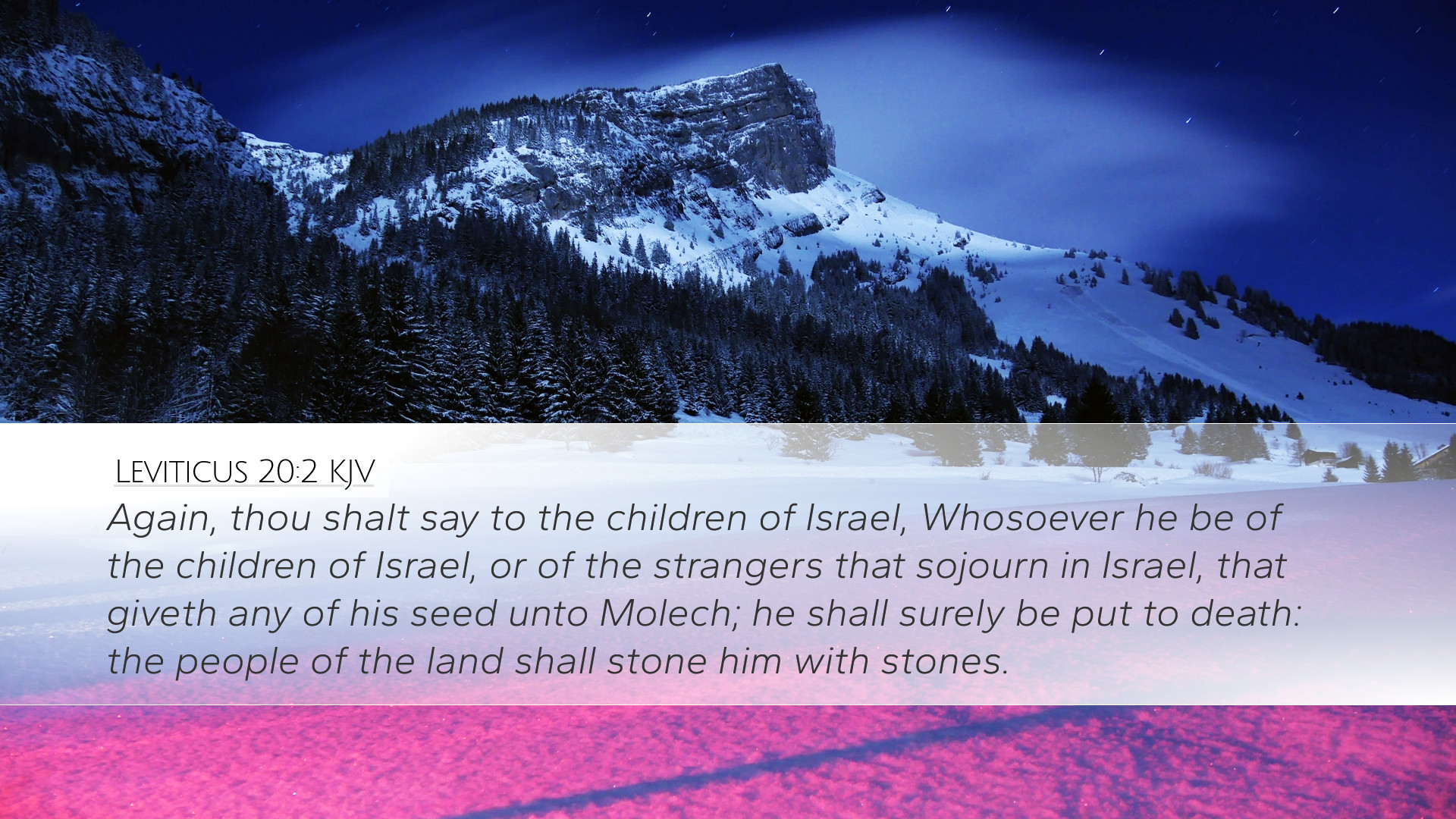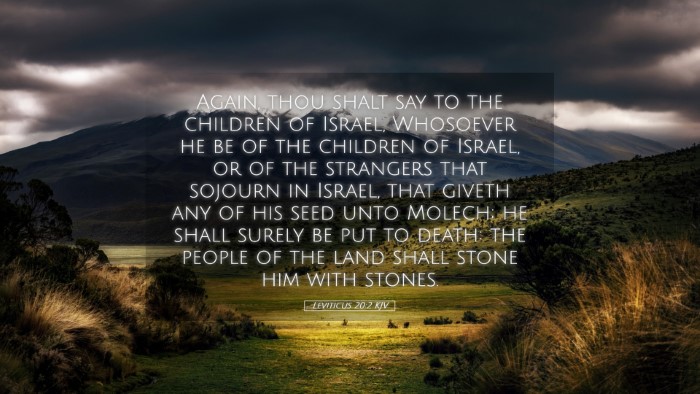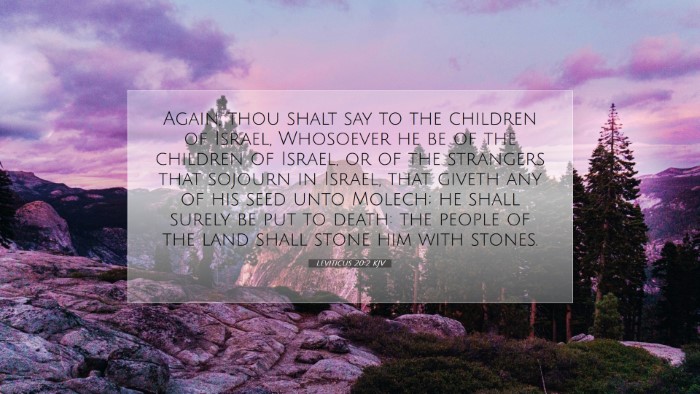Commentary on Leviticus 20:2
Verse: "Say to the Israelites: Anyone who sacrifices one of his children to Molech is to be put to death. The people of the land are to stone him." (Leviticus 20:2, NIV)
Introduction
The book of Leviticus serves as a foundational text in the biblical canon, emphasizing holiness, obedience, and the sacredness of life. Leviticus 20:2 addresses a grave issue in ancient Israel—the practice of child sacrifice to Molech. This verse encapsulates the severity of such actions and the law's implications for community purity and divine displeasure. Various public domain commentaries provide rich insights into its historical context and theological significance.
Contextual Analysis
Understanding Leviticus 20:2 begins with the backdrop of Israelite culture and the Canaanite practices surrounding them. The worship of Molech was abhorrent to Yahweh, characterized by inhumane rituals that often involved child sacrifice, a moral and religious transgression sharply condemned throughout Scripture.
Matthew Henry's Perspective
Matthew Henry comments on the gravity of sacrificing children, highlighting it as an act that horrifies both the divine and moral order. He notes that this command illustrates God's holiness and the need for His people to remain separate from pagan practices. Henry emphasizes the consequences of sin in any form, pointing out the community's responsibility to uphold the covenant with God through active participation in maintaining holiness among themselves.
Albert Barnes' Insights
Albert Barnes elaborates on the phrase "the people of the land," indicating the communal effort required to execute justice. He notes that the verse signifies the collective witness of the community against such abomination and reflects on how severe penalties served as deterrents against these immoral practices. Barnes underscores the idea that such a sin not only disgraced the family but brought communal guilt upon Israel.
Adam Clarke's Examination
Adam Clarke delves into the implications of Molech worship in detail, examining the historical context of the deity and the rituals associated with such worship. He interprets the punishment prescribed as indicative of God's intense disdain for idol worship and human sacrifice. Clarke stresses that the call for capital punishment was intended not simply as retribution but as a means of safeguarding the community's fidelity to Yahweh.
Theological Implications
Leviticus 20:2 raises significant theological themes relevant not only to ancient Israel but to contemporary faith communities. The command reflects the divine justice and the sanctity of human life central to biblical theology.
- Divine Justice: This verse captures the seriousness with which God regards the violation of ethical and moral laws. Idolatry and child sacrifice are not mere violations of religious obligations; they represent a profound affront to God's character.
- Covenantal Responsibility: The prescribed punishment denotes the serious commitment of Israel to the covenant with God. Their task was to be a holy nation, set apart for God’s purposes.
- Community Integrity: The responsibility to execute justice illustrates that holiness is not solely an individual pursuit but a communal obligation. This principle resonates in the New Testament's call for the church to uphold righteousness within its midst.
Practical Application for Today
While the cultural context of Leviticus 20:2 may seem distant, its principles resonate deeply in today's world. The contemporary church is often faced with various forms of societal idolatry and moral challenges.
- Guarding Against Idolatry: Just as Israel was called to reject Molech, modern believers must recognize and forsake contemporary idols—materialism, autonomy, and secular ideologies that seek to replace divine authority.
- Value of Life: The sanctity of life must be upheld in every aspect of ministry. The church is called to advocate for the vulnerable, aligning with God’s intent for life and dignity.
- Community Accountability: Like ancient Israel, today's church is tasked with the responsibility of maintaining moral integrity and holding each other accountable to the standards of the Gospel.
Conclusion
Leviticus 20:2 serves as a stark reminder of the sanctity of life and the holiness required by God from His people. Through the lens of public domain commentaries, we glean vital insights into divine justice, covenantal obligations, and practical applications that remain relevant across generations. The church today must heed these ancient warnings and affirm its commitment to uphold God’s standards in every area of life.


